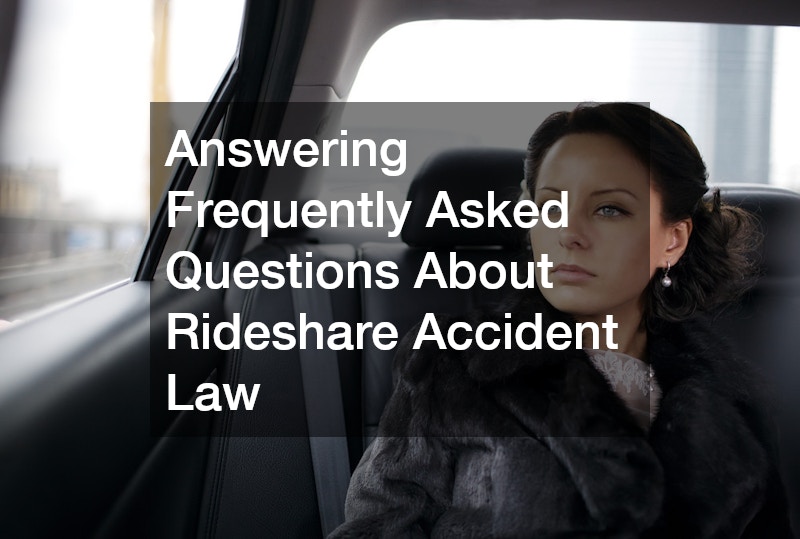Ridesharing services like Uber and Lyft have transformed the way people travel. However, with the rise of these services comes an increase in rideshare accidents, raising questions about liability, insurance coverage, and legal recourse. Here, we answer some frequently asked questions about rideshare accident law to help clarify these important issues.
1. Who is liable in a rideshare accident?
Liability in a rideshare accident can vary based on the circumstances. Generally, liability falls on the driver, especially if they were negligent or violated traffic laws.
However, rideshare companies may also be held partially liable if their drivers were engaged in rideshare activities at the time of the accident. This means if a driver is actively picking up or dropping off a passenger, the rideshare company’s insurance may come into play.
2. What type of insurance covers rideshare drivers?
Rideshare companies typically provide insurance coverage for their drivers, but the extent of this coverage depends on the driver’s status at the time of the accident:
App Off: If the driver is not logged into the rideshare app, they are generally covered by their personal auto insurance.
App On, No Passenger: When the driver is logged into the app but not yet matched with a passenger, rideshare companies usually provide limited liability coverage.
App On, Passenger Present: Once a passenger is in the vehicle, the rideshare company’s full commercial insurance coverage is activated, often offering significant liability limits.
It’s essential for both drivers and passengers to understand these coverage distinctions.
3. What should I do if I’m involved in a rideshare accident?
If you’re involved in a rideshare accident, take the following steps:
Check for injuries: Ensure everyone involved is safe and call emergency services if necessary.
Gather information: Document the accident by collecting contact information, insurance details, and any witness accounts.
Report the accident: Notify the rideshare company about the incident through their app or website.
Consult with an attorney: Consider speaking with a personal injury lawyer who specializes in rideshare accidents to understand your legal options.
4. Can I sue a rideshare driver or the company?
Yes, you can file a personal injury lawsuit against the rideshare driver or the company, depending on the circumstances of the accident. If the driver was negligent, you may seek compensation for medical expenses, lost wages, and pain and suffering. If the rideshare company’s policies or practices contributed to the accident, you might have grounds to hold them liable as well.
5. How does the claims process work?
The claims process for rideshare accidents typically involves:
Filing a claim: Victims file a claim with the appropriate insurance company, whether it’s the driver’s personal insurance or the rideshare company’s commercial insurance.
Investigation: The insurance companies will investigate the accident to determine liability.
Settlement negotiations: If liability is established, negotiations may begin to reach a fair settlement. If an agreement cannot be reached, litigation may be necessary.
Watch the video above to learn more and call a rideshare accident lawyer in Denver today!.
